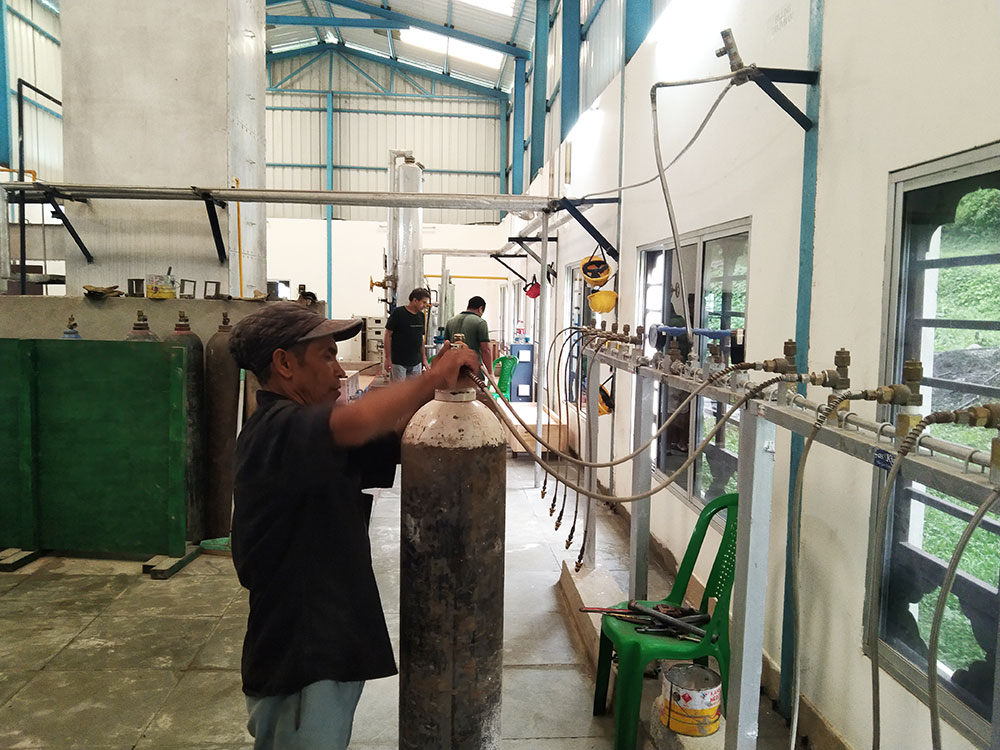Nima | Gelephu
The lone medical and industrial gas factory in Gelephu with the capacity to produce 150 cylinders of gas in a day is producing only about 45 cylinders for the lack of market in the country.
The oxygen gas plant is on the brink of closure.
With industries choosing imported gas, the factory had been running under loss since its operation in 2019.
However, with the change in procurement procedures, the factory could supply cylinders to Gelephu Central Regional Referral Hospital and workshops in the industrial service centre today.
The factory also supplies cylinders to nearby workshops in Tsirang, Dagana, Zhemgang, Nganglam, and also to Punatshangchu Hydropower Projects that procures almost 25 percent of the total gas produced.
The owner of the plant, Chencho Gyeltshen, said many established industries and projects in the country continue to choose imported gas.
He said that the procurement system at Druk Green Power Corporation, a potential market for the factory, was still not viable for the plant to take part in its tender and quotation.
“We have to bid our rate to that of plants in Phuentsholing. It is not possible considering the cost of transportation. It would help if they call the quotation as per the rate in the place of delivery,” Chencho Gyeltshen said.
He added that the competition for the domestic supply also comes from neighbouring Indian factories. “Dungsam Cement Corporation Ltd (DCCL) has a supplier from Bongaigaon in Assam supplying industrial gas.”
He said it would be better if a separate tender could be called for regional and local suppliers. “It is also not encouraging to see our firms choose imported gas when it’s available in the country.”
The owner said a Ferrosilicon company from Samdrupjongkhar bought gas from the plant during the lockdown but stopped after the gates were open because of the transportation cost.
“The cost of the cylinder was much cheaper here. The oxygen cylinder crisis in India has shot up the price,” he said. “It is important to support small firms like ours.”
He said big industries could opt for international suppliers only if domestic plants can’t meet the demand.
Chencho Gyeltshen also said the slow growth of Jigmeling industrial estate and the workshops working in reduced capacity during the pandemic has worsened the factory’s demand.
The plant expects to run at least at 80 percent capacity and go on to reduce the cost of production further with the support from bigger industries and projects in the country.
The company’s plan to partner with the Bhutan Hydropower Services Ltd (BHSL) in Jigmeling could not materialise after the pandemic sealed the border and the factory couldn’t bring the technical expert to finalise the plan.
Chencho Gyeltshen said that BHSL is one of the highest consumers of industrial gases in the region.
“We have been running the plant on loss for the past two years. Other businesses are sustaining the plant. The electricity bill comes close to Nu 200,000 and there is staff salary to meet,” he said.
The plant would be run in full capacity once the partnership with BHSL materialises. The gas plant could not sell more than 700 cylinders in a month to date.
Edited by Tashi Dema


